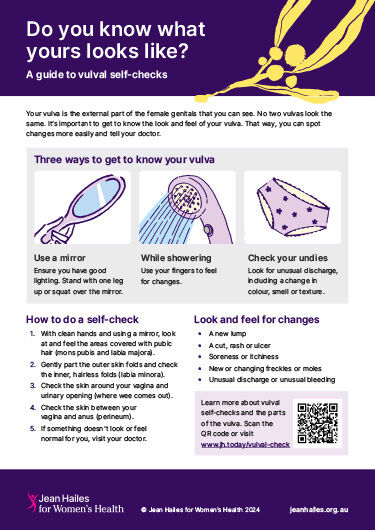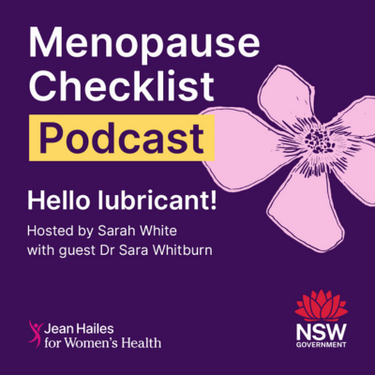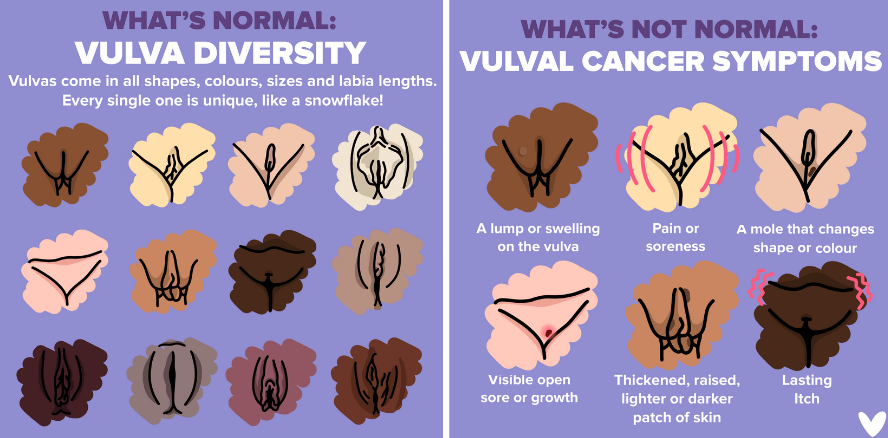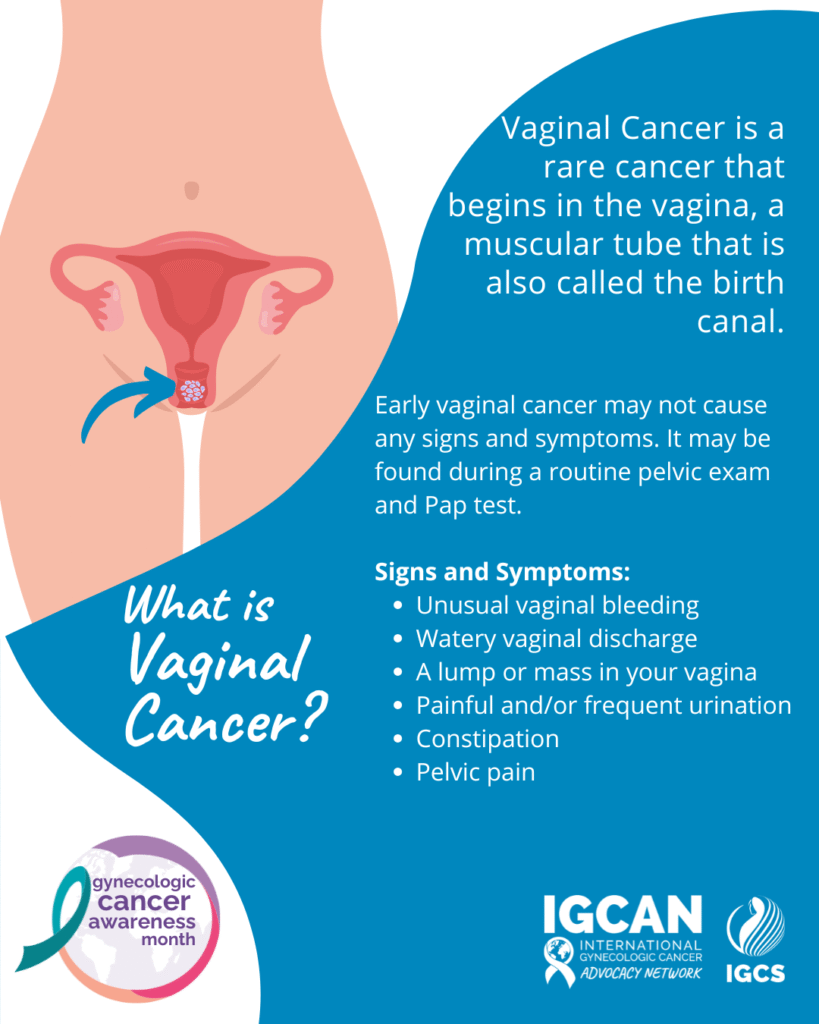“Your vagina is inside your body.
It extends from your vulva to the start of your uterus.
It’s where your period flows down from the uterus…”.1
Umbrella
What may the Vagina Umbrella include?
Depending on the Source (DotS) this Umbrella may include:
- Vagina
- Vulvovaginal
- “Down Below/There”
- “Lady Parts”
- “Private Parts”
- “Privates”
- “Things That Go Wrong Down There”
- “Women’s Bits”
Vulva and Vagina
What is the difference between the vulva and the vagina?
In About the Vulva and Vagina: What Is the Difference Between Your Vulva and Vagina? [+ Image] the (Australian) Jean Hailes for Women’s Health JH explain:
Definition
What is the vagina?
DotS the definition of the vagina may vary. The (United States) MedlinePlus’ definition is:
“The vagina is the female body part that connects the womb (uterus) and cervix to the outside of the body”.3
In Vagina: Information the MedlinePlus also explain:
Menstrual blood leaves the body through the vagina. The vagina also allows for sexual intercourse, and it is the passageway a baby goes through when it is born”.4
Diagram
Where may I find a diagram of the vagina?
Your Country’s Women’s Health website may include a topic similar to the (Australian) Jean Hailes for Women’s Health (JH) topic which includes a diagram:
Symptoms of Vaginal Conditions
What are symptoms of vaginal conditions?
In Vagina: Conditions and Disorders – What Are the Common Conditions and Disorders That Affect the Vagina? Symptoms of Vaginal Conditions the (United States) Cleveland Clinic include:
- Burning sensation when you pee (dysuria)
- Changes in the amount or color of vaginal discharge
- Irregular vaginal bleeding or heavy menstrual bleeding
- Itching, burning or sore vagina or vulva
- Pain during intercourse (dyspareunia)
- Vaginal discharge that smells fishy
- Vaginal discharge with the consistency of cottage cheese
You should see a healthcare provider or a gynecologist if you have these symptoms”.5
Vaginitis
What is vaginitis?
DotS the definition of vaginitis may vary. MedlinePlus’ definition is:
“Inflammation of the vagina is known as vaginitis”.6
Menopause Symptoms
What vaginal symptoms can menopause cause?
In Symptoms of Menopause: Bladder, Vaginal and Vulval Problems the JH explain:
 “As you move into perimenopause and menopause, low oestrogen levels change your vulval, vaginal and bladder tissues. These changes may affect up to half of postmenopausal women”.7
“As you move into perimenopause and menopause, low oestrogen levels change your vulval, vaginal and bladder tissues. These changes may affect up to half of postmenopausal women”.7Vulvovaginal Atrophy
What are vulvovaginal atrophy symptoms?
In Vulvovaginal Atrophy: Symptoms of Vulvovaginal Atrophy the JH explain:
- Dry vagina
- Painful sex (dyspareunia)
- Reduced vaginal lubrication during sex
- Burning and itching in the vagina
- Vulval irritation, especially when wearing tight pants or Lycra
- Smelly vaginal discharge (sometimes mistaken for thrush)
- Shortening and tightening of the vagina
- Pale and thin labia (lips) and vagina
- Reduced pubic hair
- Spotting or light bleeding, including after sex – if this happens, see your doctor straight away”.8
Smell
After menopause may vaginal smell change?
In About the Vulva and Vagina: Are all Vulvas and Vaginas the Same? Smell [+ Image] the JH elaborate on:
“It’s normal for your vulva and vagina to have a different smell at certain times during your menstrual cycle, and after menopause”.9
Vaginal Health
What can women do to keep their vagina healthy?
In Vagina: What’s Typical, What’s Not – What Can I Do To Keep My Vagina Healthy? the (United States) Mayo Clinic elaborate on:
- Have safer sex…
- Get vaccinated…
- Do Kegel exercises…
- Know your medicines…
- Limit the amount of alcohol you drink and don’t smoke…
- Be gently”.10
Health Care Provider
What if I am unsure about what is going on down there?
If you are unsure about what is going on down there, it may be in your best interest to choose to talk to your health care provider about this.
On page two in Genitourinary Syndrome of Menopause the (United States ) Menopause Society (formerly the North American Menopause Society) explain:
“Vaginal and vulvar symptoms not related to menopause include yeast infections, allergic reactions, and certain skin conditions, so consult your healthcare professional if symptoms do not improve with treatment”.11
The JH also note:
“If you are worried about the smell, or have symptoms, see your doctor”.12
The Mayo Clinic explain:
- A change in the color, odor or amount of vaginal discharge
- Changes in vaginal skin colour or itching
- Vaginal bleeding between periods, after sex or after menopause
- A mass or bulge in the vagina
- Pain during sex or trouble having sex”.13
The Mayo Clinic also note:
“You can’t prevent all vaginal issues. But having regular checkups can help make sure that issues of the vagina are diagnosed as soon as possible. It’s important to talk openly with your healthcare professional about vaginal health”.14
Health Topics A-Z
Where may I find Health Topics A-Z related to Vagina?
In Health Topics A-Z you may find:
Links
Where may I find Links related to Vagina?
Your Country may have Links similar to:
Links
This Links List to third party websites is neither comprehensive nor exhaustive. Inclusion on this Links List does not imply endorsement or recommendation. Non-inclusion on this Links List does not imply non-endorsement or non-recommendation. Third party websites are not under the control of Meno Martha International Menopause Directory. Third party websites may contain explicit medical images and/or sexual references. Please read Meno Martha International Menopause Directory’s Links Policy before proceeding to a Link. Please contact Webmaster if you experience a problem with a Link.New or Updated
- Anatomy of the Vagina [12 December 2025]
- FDA Direct: Removing Black Box Warnings for HRT (Part 1/2) [10 November 2025]
- SHE+ Explains: Does the Vagina Clean Itself? (By Parents, for Parents) [July 2025]
- SHE+ Explains: Vulva vs Vagina (By Parents, for Parents) [July 2025]
- Vaginal Laser Therapy [05 September 2025]
- Why You Get An Itch or Thrush on Vaginal Estrogen and What To Do About It [02 November 2025]
- A Guide To Vulval Self-Checks [+ Video]

- About the Vulva and Vagina
- Anatomy of the Vagina
- Are Probiotics Good for Vaginal Health?
- Australian and New Zealand Vulvovaginal Society: Patient Information
- Bacterial Vaginosis
- Bacterial Vaginosis
- Bartholin’s Cyst
- Bartholin’s Cyst [+ Image]
- Boxers, Briefs and Bacterial Vaginosis: How Your Underwear Can Affect Your Health
- Caredownthere.com.au
- Coconut Oil As A Lube: Is It Safe and Can You Use It?
- Consumer Video and Podcast Series: 2024 Consumer Videos and Podcasts – Preparing for Your Menopause Health Care Visit
- Essential Information: See Your Doctor If
- Experiencing Vaginal Dryness? Here’s What You Need To Know
- FAQs: Vaginal Rejuvenation, Labiaplasty, and Other Female Genital Cosmetic Surgery
- FAQs: Vulvovaginal Health
- FDA Direct: Removing Black Box Warnings for HRT (Part 1/2)
- FDA Direct: Removing Black Box Warnings for HRT (Part 2/2)
- Genitourinary Syndrome of Menopause
- Genitourinary Syndrome of Menopause
- Genitourinary Syndrome of Menopause and the False Promise of Vaginal Laser Therapy
- Gyn Care 101: What To Know About Seeing A Gynecologist
- Hormonal Health – Clues Made Clear
- Hormone Replacement Therapy (HRT)
- Hormone Replacement Therapy (HRT): Vaginal Oestrogen
- Hormone Replacement Therapy (HRT): Vaginal Oestrogen: About Vaginal Oestrogen
- Hormone Replacement Therapy (HRT): Vaginal Oestrogen: Common Questions About Vaginal Oestrogen
- How To Manage Vaginismus
- How To Talk To Your Doctor About Painful Sex

- International Society for the Study of Vulvovaginal Diseases: Patient Handouts
- International Society for the Study of Women’s Sexual Health: Find A Provider
- Joint Position Statement By the British Menopause Society, Royal College of Obstetricians and Gynaecologists and Society for Endocrinology on Best Practice Recommendations for the Care of Women Experiencing the Menopause
- Later Years (Around 50 Years and Over): Menopause and Post Menopause Health – Sexual Wellbeing, Intimacy and Menopause [+ Video: Menopause Is the End of Your Sex Life] [Other Languages and Formats]
- Lubricant Alternatives: What To Use and What To Avoid
- Mayo Clinic Minute: Reducing the Risks of Sexually Transmitted Infections [+ Video Courtesy: Mayo Clinic News Network]
 Menopause Checklist Podcast: Episode 6: Hello Lubricant!
Menopause Checklist Podcast: Episode 6: Hello Lubricant!- Menopause Ruining Your Sex Life?
- Navigating Menopause Together: How Partners Can Help
- Online Events [International Menopause Society]: Past Webinars – 2025: The Burn, the Itch, the Pain, the Urge: GSM In Women
- Pain Down There? 9 Reasons Your Vagina Hurts
- Pelvic Exam
- Pelvic Floor Health | Dr Louise Newson LIVE
- Perimenopausal and Postmenopausal Bleeding
- Prosayla Supported by ISSWSH [International Society for the Study of Women’s Sexual Health]
- Q&A: Normalize Seeking Proper bacterial Vaginosis Diagnosis, Treatment
- SHE+ Explains: Does the Vagina Clean Itself? (By Parents, for Parents)
- SHE+ Explains: Vulva vs Vagina (By Parents, for Parents)
- Sheplusfoundation.com [SHE+ Foundation formerly known as The Patty Brisben Foundation]
- Sexual Difficulties In The Menopause
- Sexual Problems and Menopause
- Sexually Transmitted Infections
- Stigma In Gyn Cancer

- The Vulva & Vagina Explained: Sex Ed #2 [April 2025]
- They are not bad words! (Campaign Theme Song)
- Tips for Checking Your Vulva: What You Should Be Looking For

- Tips for Tracking Your Bleeding
- Understanding Gyn Cancers
- Vagina
- Vagina
- Vagina: What’s Typical, What’s Not
- Vaginal Atrophy
- Vaginal Atrophy
- Vaginal Bleeding
- Vaginal Cancer
- Vaginal Cancer
- Vaginal Cancer

- Vaginal Cancer [+ Image]
- Vaginal Cancers
- Vaginal Discharge
- Vaginal Diseases – Multiply Languages
- Vaginal Dryness
- Vaginal Dryness
- Vaginal Dryness
- Vaginal Dryness After Menopause: How To Treat It?
- Vaginal Dryness Alternative Treatments
- Vaginal Laser Therapy
- Vaginal Odor
- Vaginal Prolapse
- Vaginal and Vulval Pain: Know the Different Causes and When To Seek Help
- Vaginal and Vulvar Cancers
- Vaginitis
- Vaginitis
- Videos & Podcasts: Videos – Menopause and Hormone Therapy: Current Perspectives and Controversies
- Videos and Podcasts: Videos – Vulvovaginal Atrophy
- Vulva and Vagina
- Vulval Self-Checks: How To Get To Know Your Vulva and Why You Should
- Vulval and Vaginal Conditions
- Vulvovaginal Atrophy
- Vulval and Vaginal Thrush
- Well-Woman Exams: Who Needs Them and What To Expect
- What Happens To Your Vagina As You Age?
- What Is Vaginal Steaming and Is It Safe?
- What Types of Vaginal Oestrogens Are There?
- What’s Normal: What Is Normal Vulval & Vaginal Anatomy?
- Why Men Need To Understand The Menopause & Women’s Hormones | Dr Louise Newson
- Which Vaginal Moisturiser Should You Use?
- Why You Do Not Ever Need To Douche
- Why You Get An Itch or Thrush on Vaginal Estrogen and What To Do About It
- World GO Day [World Gynecologic Oncology Day, 20 September 2025]

Sources
Where may I find the Sources quoted?
You may find the Sources quoted at:
Sources
- About the Vulva and Vagina: What Is the Difference Between Your Vulva and Vagina? Last Updated: 06 June 2025 | Last Reviewed: 02 June 2025. Jean Hailes for Women’s Health https://www.jeanhailes.org.au/health-a-z/vulva-vagina/about-the-vulva-and-vagina Accessed: 03 January 2026
- About the Vulva and Vagina: What Is the Difference Between Your Vulva and Vagina? Last Updated: 06 June 2025 | Last Reviewed: 02 June 2025. Jean Hailes for Women’s Health https://www.jeanhailes.org.au/health-a-z/vulva-vagina/about-the-vulva-and-vagina Accessed: 03 January 2026
- Vagina. Review Date: 01 November 2023. MedlinePlus https://www.nlm.nih.gov/medlineplus/ency/article/002342.htm Accessed: 03 January 2026
- Vagina: Information. Review Date: 01 November 2023. MedlinePlus https://www.nlm.nih.gov/medlineplus/ency/article/002342.htm Accessed: 03 January 2026
- Vagina: Symptoms of Vaginal Conditions – What Are the Common Conditions and Disorders That Affect the Vagina? Symptoms of Vaginal Conditions. 14 April 2025. Cleveland Clinic https://my.clevelandclinic.org/health/body/22469-vagina Accessed: 03 January 2026
- Vagina: Information. Review Date: 01 November 2023. MedlinePlus https://www.nlm.nih.gov/medlineplus/ency/article/002342.htm Accessed: 03 January 2026
- Symptoms of Menopause: Bladder, Vaginal and Vulval Problems. Last Updated: 15 October 2025 | Last Reviewed: 23 April 2025. Jean Hailes for Women’s Health https://www.jeanhailes.org.au/health-a-z/menopause/menopause-symptoms Accessed: 03 January 2026
- Vulvovaginal Atrophy: Symptoms of Vulvovaginal Atrophy. Last Updated: 15 August 2025 | Last Reviewed: 02 June 2025. Jean Hailes for Women’s Health https://www.jeanhailes.org.au/health-a-z/vulva-vagina/vulval-vaginal-conditions/vaginal-atrophy Accessed: 03 January 2026
- About the Vulva and Vagina: Are All Vaginas and Vulvas the Same? Smell. Last Updated: 06 June 2025 | Last Reviewed: 02 June 2025. Jean Hailes for Women’s Health https://www.jeanhailes.org.au/health-a-z/vulva-vagina/about-the-vulva-and-vagina#vulval-care Accessed: 03 January 2026
- Vagina: What’s Typical, What’s Not – What Can I Do To Keep My Vagina Healthy? 30 January 2025. Mayo Clinic https://www.mayoclinic.org/healthy-lifestyle/womens-health/in-depth/vagina/art-20046562 Accessed: 03 January 2026
- Genitourinary Syndrome of Menopause. May 2025:2. Menopause Society https://menopause.org/wp-content/uploads/for-women/MenoNote-GSM.pdf Accessed: 03 January 2026
- About the Vulva and Vagina: Are All Vaginas and Vulvas the Same? Smell. Last Updated: 06 June 2025 | Last Reviewed: 02 June 2025. Jean Hailes for Women’s Health https://www.jeanhailes.org.au/health-a-z/vulva-vagina/about-the-vulva-and-vagina#vulval-care Accessed: 03 January 2026
- Vagina: What’s Typical, What’s Not – What Are Symptoms of Vaginal Issues? 30 January 2025. Mayo Clinic https://www.mayoclinic.org/healthy-lifestyle/womens-health/in-depth/vagina/art-20046562 Accessed: 03 January 2026
- Vagina: What’s Typical, What’s Not – What Can I Do To Keep My Vagina Healthy? 30 January 2025. Mayo Clinic https://www.mayoclinic.org/healthy-lifestyle/womens-health/in-depth/vagina/art-20046562 Accessed: 03 January 2026







